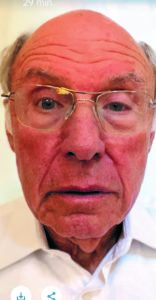
By Bernie Dishler
As the world mourns the passing of Mikhail Gorbachev, many Jews are heaping praise on the former Soviet leader, crediting him with freeing the Soviet Jews.
I would compare praising Gorbachev with praising Pharaoh for freeing the Hebrews from Egypt.
With time passing, our memories might need to be reminded of the decades of pressure put on the Soviet Union by the world’s Jewish community and many other supporters.
A look through the Exponent archives will make readers aware of the myriad of activities that started in the early ’70s and continued into the early ’90s.
The Soviet Jewry movement constantly made the world aware of the situation of Jews in the Soviet Union. Whether they attended a visiting Soviet opera company, a concert or a hockey game, attendees were met with demonstrators educating them about the plight of our Soviet brethren.
Congressional leaders were encouraged to constantly raise the issue of individual refuseniks and the millions wanting to emigrate. Some of the members of Congress who went on official visits to the USSR took time out of their meetings to meet with Jewish refuseniks.
Hundreds of Jews and non-Jews from Philadelphia traveled to the Soviet Union to visit with refusenik leaders, bringing moral support as well as helping them with their goal of spreading Jewish identity. This was their only means of communicating with the world beyond the Iron Curtain. We established a lifeline. Bar and bat mitzvah pairings in area synagogues brought home the plight of teens in the USSR who could not celebrate the same rite.
President Ronald Reagan was asked to talk about the issue at every meeting with Gorbachev.
And then, with short notice, it was announced that Gorbachev was coming to the United States to meet with Reagan to sign an important arms agreement. Reagan had promised Jewish leadership that the meeting would not go forward without the freedom of emigration for Jews being on the agenda.
The Jewish community mobilized like it never had before. Every bus in the tri-state area was rented, and 15,000 Philadelphians went to join the rest of the 250,000 protesters on Dec. 6, 1987. We gave backing to Reagan’s words.
Gorbachev was meeting with the president the next day. He could not ignore the pressure anymore.
Natan Sharansky, the former Israel Cabinet minister and chair of the Jewish Agency who spent nine years in Soviet prison for Jewish activism, said, ”Without the pressure and the struggle of the Jewish world for Soviet Jews, supported by Reagan and other world leaders, Gorbachev would probably never have done it.”
My message is not a question of whether Gorbachev deserves praise. It is a message of learning from history. In the 1930s and 40s, most Jews, for whatever reason, did not do enough during the Holocaust, and 6 million of our brethren were slaughtered.
In the ‘70s and ’80s, the organized Jewish community supported efforts in many different ways to raise the pressure on the Soviet leadership. More than 2 million Jews left the USSR, and others continue to leave.
The next generations must know about this history, and they must learn from it. I have been told by many Jewish emigres from the USSR that they do not know the story. And their children certainly do not.
My plea to Jewish educators and parents: Tell the story!
Bernie Dishler is a former co-chair of the Soviet Jewry Council of Philadelphia.



